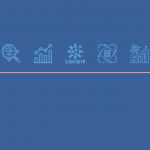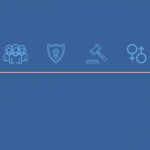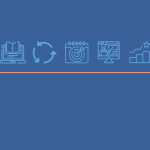Summary
• Covid-19 has exacerbated gender gaps and inequalities globally with a prominent adverse impact on the social and economic conditions of females.
• Job losses, wage cuts, health risks, unpaid and increased care work, and gender-based violence (GBV) are some of the most challenging consequences of the pandemic’s fallout.
• High participation in the informal sector, low digital access, vulnerability to continue employment or schooling, disruptions in healthcare and domestic responsibilities disproportionately affect
females.
• Gender-based violence, education dropouts and diminished capacity for economic participation can lead to long-term adverse impact on Pakistan’s growth.
• The national Covid-19 response can be gender-oriented by transforming the data regime for gender-focused informed decision-making, economic enablement through tailored support programmes, skilling and re-skilling to pivot during the pandemic and ensuring provision of safety and wellbeing services.
Introduction
Fallout from the Covid-19 pandemic globally has been particularly pronounced from a gender perspective, compounding pre-existing inequalities. According to UN Women, it is imperative that females are prioritised in policymaking and outreach initiatives as they are at greater risk of economic, social and personal losses [i]. In the case of Pakistan, adverse impacts on the economic standing of females pose a grave challenge whereby the post-pandemic world is likely to see a lapse in marginal gains realized with regards to gender empowerment and equality.
Females constitute half of the population of the country, and their role in economic growth and a prosperous future of Pakistan is central. Females in Pakistan make up 20.1% of the labour force and are mostly engaged in primary and secondary activities requiring basic skills and education [ii]. According to the Labour Force Survey 2017-2018, 71.8% females were engaged in the informal sector due to poor employment prospects in the formal sector [iii]. This is a direct consequence of the gender gap in attainment of education outcomes attributable to low enrolment and transition rates. Informal low-wage markets are the first to feel economic shocks generated by public health emergencies like Covid-19. A Special Survey for Evaluating Socio-Economic Impact of Covid-19 on Wellbeing of People by Pakistan Bureau of Statistics found that the informal sector was the hardest hit by the pandemic with 74% of total job losses attributed to the sector [iv].
The World Economic Forum’s Gender Gap Report 2020 reveals that countries can achieve high economic output by 2030 by committing to inclusive economic growth, boosting employment opportunities and reducing gender disparities in job losses from Covid-19 [v]. It is therefore critical to improve economic resilience and wellbeing of at-risk females to accelerate inclusive and sustainable growth. Failure in mitigating gender specific shocks can have serious implications for Pakistan’s growth trajectory [vi].

Key Emerging Issues
Analysis of global and local emerging evidence and insights around the economic and social challenges for females has highlighted the complex interplay of various factors that manifest and perpetuate inequalities through an array of issues:
1. Female employment is at a higher risk in comparison to male employment as 71.8% of female labour force is concentrated in the informal sector which is more vulnerable to economic shocks. The informal sector is also characterised by weak and/or no enforcement of labour laws or standards of work, and minimal prevalence of insurance or other business protection for workers which will disproportionately affect females. [vii]
2. Women-owned and managed micro, small and medium enterprises (MSMEs) operate as cottage industries or smallscale informal businesses with no documentation, limited cash reserves and assets. Their informal status renders them ineligible for credit or support from other structured programmes offered by the government.
3. Closure of education institutions, intermittent lockdowns and compliance with safety precautions have made otherwise productively engaged (in studies or work) females homebound. Cultural attitudes and set expectations around gender roles thereby result in having a skewed increase in the burden of unpaid care and domestic work for females which affects pursuit of alternative options like work-from-home and e-commerce [viii]. Economic pressures at the household level are also likely to result in higher female dropouts from schools.
4. Healthcare systems have been under pressure to tackle the Covid-19 crisis with significant resources reallocated and redeployed to manage the pandemic. Safety precautions at health facilities have also reduced their servicing capacity. These changes have led to an unfavourable limited access to healthcare for females as facilities that were available earlier are no longer able to service at previous levels.
Implications
Diminished financial autonomy
Loss of income from jobs and/or businesses diminishes their financial autonomy and domestic standing by becoming more dependent on male partners. This compounds the pressure on household income and increases economic vulnerability. Coupled with more time at home and social isolation, these pressures result in an increased incidence of gender based violence (GBV) with little access to help and support. The situation is further exacerbated by the housing situation in Pakistan where 68% of all housing units have either one or two rooms [ix]. GBV has a negative impact on the physical and mental health of female employees, and consequently, on their workplace productivity due to resignations, absenteeism and employee turnover.

Digital Access
Increased reliance on technology to enable productivity during the pandemic does offer an avenue to limit the impact on females by allowing options for home-based work and/or home-run businesses. Such opportunities nonetheless require unrestricted digital access for females. According to the Mobile Gender Gap Report 2019, Pakistan has the widest digital gender divide, with females 37% less likely than men to own a mobile phone as a consequence of patriarchal attitudes and economic dependency [x]. The digital gender gap poses particular challenges for Pakistan especially in areas of Balochistan, Khyber Pakhtunkhwa and interior Sindh. This gap further diminishes the contribution of females to the economy and also affects fundamental rights like continuing education or accessing digital health services.
Decreased Labour Force Participation
School closures increase responsibilities of mothers with respect to provision of care and domestic chores. In order to fulfil these roles, they have to leave their jobs or decrease their working hours, further reducing their labour force participation which was a meagre 20.1% pre-pandemic between 2017-2018. Cultural attitudes around education also entail that females confined to the house due to prolonged interruption in education find themselves vulnerable to abuse, forced and early marriages, and dropouts. In case of continuity of education at home, females face an additional layer of pressure through expectations and cultural bias to service domestic chores alongside online classes. Such pressures increase the risk of student dropout especially in the absence of financial and welfare support (counselling). Discontinuation of education perpetuates unequal access, limited economic mobility, exclusion from paid work, and the feminisation of poverty.
Recommendations
1
Gender-focused Data Regime
In addition to a basic gender disaggregation, administrative and survey data collection as well as sourcing efforts should offer much more granularity to be able to understand the wide-ranging consequences of the pandemic. More details could include migrant status, disability, location, socioeconomic profiles etc. The data regime should be enhanced to feed current and high-frequency data for responsive and inclusive decision-making. Administrative systems and delivery chains should be realigned and geared up in accordance with needs identified through the data for short and long-term response and recovery efforts. Assessments of the pandemic impact should drive decisions with due attention to ensure a gender-balanced response.
2
Economic Enablement
Female entrepreneurs should be encouraged to enter the documentation net by registering their businesses with a structured incentive plan to ensure they have access to support programmes. Financial institutions with the support of the government should develop tailored products to promote recovery of female-led businesses. The budgetary process for 2021-2022 should focus on allocations to support key areas that would minimise gender-specific economic and social disruptions with specific incentives like tax breaks, flexible financing plans and simplified administrative processes
3
Skill Enablement
Innovative skills development programmes can be designed to skill and reskill females who have been affected by the pandemic. The skills programmes can focus on tailored approaches to pivot existing knowledge and skills, and design recovery plans to align with opportunities and emerging trends. Such programmes can also include digital and financial literacy components, business and life skills, to better cope with the ensuing pandemic.
4
Safety and Wellbeing
Designated response to GBV should be declared an essential service to ensure that resources are not redirected to other avenues, and guaranteed minimum support system is in place. Funds should be allocated to increase the capacity of existing shelters and establishing more at the district and subdistrict level. The service delivery capacity of shelters should be increased specially for provision of medical supplies. Welfare and psychosocial support should be ensured at these facilities. Police and other helplines should be directly linked to shelters to ensure a quick response time. Legal and administrative barriers to accessing these shelters must be eliminated.
Universities and schools should be able to identify students at high risk of dropping out as a consequence of containment policies and/or economic pressures especially those from marginalised backgrounds. They should be proactively offered support and counselling free of cost.
Community-based support clusters can be established with local organisations and government patronage to serve as hubs for females where an active exchange within communities can be established with peer support, counselling and mentoring to improve the status quo. Digital channels and aids can be used to extend such services without the need for physical presence.
This material has been developed by Tabadlab in partnership with DRI. It has been funded by UK aid from the UK government; however, the views expressed do not necessarily reflect the UK government’s official policies.
End Notes
[i] UN Women. (2020). COVID-19 and its Economic Toll on Women: The Story behind the Numbers.
[ii] Pakistan Bureau of Statistics. (2017-2018). Labour Force Survey, Government of Pakistan.
[iii] Ibid.
[iv] Pakistan Bureau of Statistics. (2020). Special Survey on Evaluating the Impact of COVID-19 and Decision Support System on Inflation.
[v] Gender Innovation Lab. (2020). Supporting Women Throughout the Coronavirus (COVID-19) Emergency Response and Economic Recovery. World Bank.
[vi] UN Women. (2020). Gendered Impact and Implications of Covid-19 in Pakistan Ministry of Human Rights.
[vii] Mlambo-Ngcuka, P. (2020). Women Working on the Frontline. UN Women.
[viii] Women’s World Banking. (2020). Women’s Economic Empowerment is the Doorway to Economic Recovery and Growth Post-Covid-19; Fintechs are the Key Women’s World Banking.
[ix] Pakistan Bureau of Statistics. Housing Units by Number of Rooms and Type. [x] Raza, A. (2020, October 13). COVID-19 Reveals the Divide in Internet Access in Pakistan. Borgen Magazine. https://www.borgenmagazine.com/internet-access-in-pakistan/






